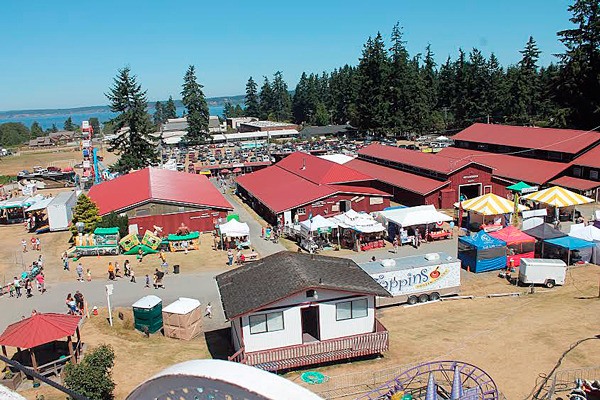The Board of Island County Commissioners agreed informally earlier this month that the Whidbey Island Fair will be held for the next two years, despite the unsettled and contentious issue of who will own and run the fairgrounds.
The Port of South Whidbey, which is managing the historic fairgrounds under a one-year lease set to expire March 31, told the commissioners it will renew its lease only if they agree to honor the results of an August referendum the port proposes.
The referendum would ask voters whether they favor the county’s giving the fairgrounds to the Port. The vote would also ask residents in the Port’s jurisdiction whether, if they approve the transfer, they are willing to let the Port raise its levy limit on their property taxes to help underwrite fairgrounds maintenance and grant matching.
Further discussions among the commissioners, the Port and the Whidbey Island Fair Association are scheduled for today.
Commissioners Rick Hannold and Jill Johnson made it clear recently that they believe the county should no longer own the fairgrounds, a responsibility it has held since 1962. They made the same point during several meetings in the past.
However, the board of the fair association is expected to present a plan today under which the county would continue to own the fairgrounds and association to manage it — the same arrangement that was in place between 1962 and April 1, 2015, when the Port signed its first management lease.
“The Port isn’t doing any better at managing the fairgrounds than we were doing, and maybe worse,” said Wendy Sundquist, a former vice president of the fair association’s board who still works closely with the board.
“We were happy the Port was going to take care of the property and make the fair a priority, but what we’ve seen over the past year leads us to think that’s not what’s happening.”
The board is concerned that the Port sees the fairgrounds as an economic-development opportunity, while the fair association sees them as a community asset, she said.
For example, she said that the 2015 fair paid $300 in rent, but under the port’s plan, rent in the future could hit $45,000.
“We have no written agreement with the Port that it would continue the fair, and we’re afraid we don’t fit into its plans,” she said. “We’re about community support and service and 4-H. We’re not about economic development.”
Not all members of the fair association agree with its board.
“The Port made more improvements in one year than the county made in 40 years,” said Gwendy Hastings, who said she’s been an association member for 10 years.
“It fixed barns, it fixed bleachers that were getting ready to fall over, it fixed water leaks in the 4-H building. We have more tenants, we’ve probably doubled the rent we get, and the commercial kitchen is being used on a weekly basis now.”
Island County gave the Port $100,000 toward repairs, she acknowledged, but the port did not bill the county for labor on those projects.
In contrast, over the past three years, the county has given the fair board $90,000, and “we did no fixing.”
Whoever ends up owning the fairgrounds, it must make assurances that the fair will continue, Hastings said.




